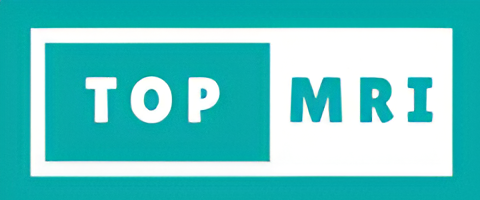
- Home
- Services
- Locations
- MRI Scan
- Greater London Area
- London – Marylebone, W1G 7HE – 3.0 T MRI Scan – £300
- London – Harley Street, W1U 2HX – Open MRI Scan – £500
- Middlesex – Enfield, EN2 8JL – 1.5 T MRI Scan – £300
- West Middlesex – Isleworth, TW7 6AF – 1.5 T MRI Scan – £300
- Surrey – Epsom, KT18 7LX – 1.5 T MRI Scan – £300
- Surrey – Ashford, TW13 3AA – 1.5 T MRI Scan – £300
- Surrey – Guildford, GU2 7XU – 3.0 T MRI Scan – £300
- Kent – Sidcup, Bexley, DA14 6LT – 1.5 T MRI Scan – £300
- North West England
- Manchester – M80 4AN – Open MRI Scan – £500
- Greater Manchester – Manchester, SK8 7NB – 1.5 T MRI Scan – £279
- Greater Manchester – Whythenshaw, M23 9LT – 3.0 T MRI Scan – £300
- Greater Manchester – Stockport, SK2 7JE – 1.5 T MRI Scan – £300
- Cumbria – Cockermouth, CA13 9HT – 1.5 T MRI Scan – £279
- Cumbria – Penrith, CA11 0AH – 1.5 T MRI Scan – £279
- Lancashire – Preston, PR4 0AP – 1.5 T MRI Scan – £279
- Lancashire – Fylde, FY8 1PF – 1.5 T MRI – £300
- North East England
- East Midlands
- East of England
- West Midlands
- South West England
- South East England
- Wales
- Yorkshire and the Humber
- Greater London Area
- CT Scan
- Full Body MRI Scan
- Ultrasound
- MRI Scan
- Patients
- Referrers
- Prices
- 0333 344 1811
[email protected]
Parathyroid Cancer
- Uncategorized
-
Sep 22
- Share post
Parathyroid Cancer: Symptoms, Causes, Diagnosis, Treatment, and Future Outlook.
Disclaimer:
This blog is for informational purposes only and should not be taken as medical advice. Content is sourced from third parties, and we do not guarantee accuracy or accept any liability for its use. Always consult a qualified healthcare professional for medical guidance.
What is Parathyroid Cancer?
Parathyroid cancer is a rare malignancy of the parathyroid glands, four small glands behind the thyroid regulating calcium via parathyroid hormone (PTH). It causes hyperparathyroidism (excess PTH), leading to hypercalcemia. In 2025, it accounts for <1% of hyperparathyroidism cases, with ~100 US diagnoses annually, median age 50, equally affecting men/women, often sporadic but linked to familial syndromes.
Symptoms
Symptoms stem from hypercalcemia: fatigue, weakness, bone pain, fractures, kidney stones, excessive thirst/urination, nausea/vomiting, abdominal pain, constipation, muscle aches, confusion, depression, and a palpable neck lump (50% of cases). Symptoms mimic benign hyperparathyroidism but are severe.
Causes
Causes are unknown, but risk factors include prior neck radiation, familial hyperparathyroidism (HPT-JT syndrome with CDC73 mutations), and end-stage renal disease. Genetic alterations in CDC73 gene are common. In 2025, studies show cyclin D1/PRAD1 overexpression in 40% of cases.
Diagnosis
Diagnosis uses blood tests for high calcium/PTH, urine for calcium excretion, imaging (ultrasound, sestamibi scan, CT/MRI) to localize tumor, and biopsy (rarely, due to seeding risk). Fine-needle aspiration is avoided; surgical exploration confirms. In 2025, 4D-CT improves localization.
Treatment
Surgery (en bloc resection of gland, thyroid lobe, lymph nodes) is curative in 90% early cases. Recurrent/hypercalcemic cases use cinacalcet (calcimimetic) or bisphosphonates. Radiation/chemotherapy have limited efficacy. In 2025, targeted therapies for CDC73 mutations are in trials.
Future Outlook
In 2025, 5-year survival is 85%, 49% 10-year, with recurrence in 50%. Early surgery improves to 90%. By 2030, genomic therapies could reduce recurrence to 30%.
Sources
The information is based on Cleveland Clinic’s “Parathyroid Cancer: Causes, Symptoms, Diagnosis & Treatment” for overview; Macmillan’s “Parathyroid cancer – symptoms, diagnosis, treatment” for symptoms; Penn Medicine’s “Parathyroid Cancer – Symptoms and Causes” for causes; MD Anderson’s “Parathyroid Disease” for types; Vanderbilt-Ingram’s “Parathyroid Cancer” for outlook; Yale Medicine’s “Parathyroid Cancer” for symptoms; MedlinePlus’s “Parathyroid cancer” for understanding; Mount Sinai’s “Parathyroid cancer Information” for treatment; StatPearls’s “Parathyroid Cancer” for diagnosis; TGH’s “Parathyroid Cancer Causes, Symptoms, Diagnosis, and Treatment” for comprehensive review.